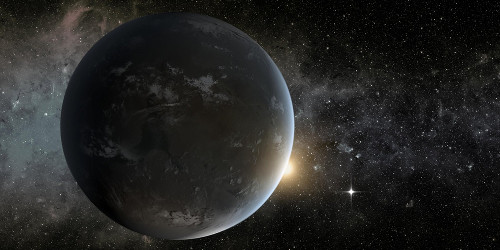US House Committee ‘Debate On Aliens’: Watch Scientists Discuss The Search For Life In Space [VIDEO]

The U.S. House of Representatives Committee on Science, Space and Technology held a hearing last week to discuss the search for “aliens.” While not quite debating “little green men,” the scientists on hand discussed biosignatures, how to search for life on other planets and the future of astrobiology.
The National Academies of Science define astrobiology as having multiple definitions, including “the study of the origin, evolution, distribution, and future of life in the universe; the study of life as a planetary phenomenon; the study of the living universe; or the origin and co-evolution of life and habitable environments."
According to the hearing's announcement, “Astrobiology: The Search for Biosignatures in our Solar System and Beyond,” the discussion comes ahead of a new roadmap for NASA’s astrobiology program, expected to be published in 2014. NASA published a roadmap in 2008 with seven goals for astrobiology. These goals, such as determining the history of life on other planets as well on Earth, gaining new insight on the evolution of life on other planets and identifying biosignatures that could signal life, will be assessed by NASA in the 2014 roadmap, which will also provide new goals for scientists.
The U.S. House Committee hearing focused on biosignature research, both present and future, and possible ways to determine if life exists on recently discovered Earth-like exoplanets. The witnesses who spoke at the hearing, held last Wednesday, included Mary Voytek, senior scientist for astrobiology in the science mission directorate at NASA; Sara Seager, MIT researcher and recipient of a 2013 MacArthur “Genius Grant,” and Steven J. Dick, chair of astrobiology at the Library of Congress. As the committee notes, a review of NASA's Kepler mission revealed that 647 exoplanets in the Milky Way galaxy are in the "habitable zone" of the star they orbit and the closest such planet is only 12 light-years away.
In addition to the discussion on astrobiology, Rep. Eddie Bernice Johnson, D-Texas, said it was imperative that NASA continue to be adequately funded. Voytek also discussed the practical benefits of astrobiology research saying, “Astrobiology is about more than just scientific discovery. Astrobiology research and technology development has an impact on our daily lives and benefits society as a whole.” Voytek described tools used to analyze the Deepwater Horizon oil spill in 2010 that were developed as part of NASA’s astrobiology program.
The full committee hearing can be viewed below.
© Copyright IBTimes 2024. All rights reserved.








